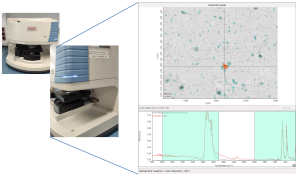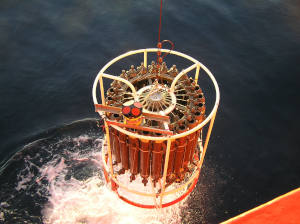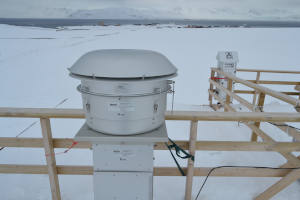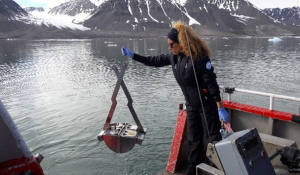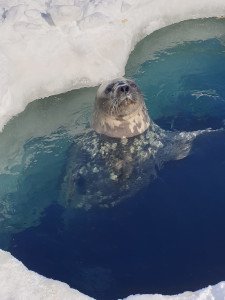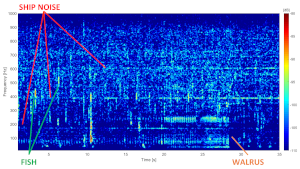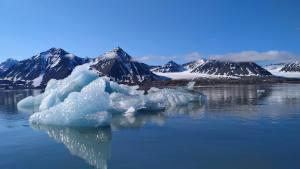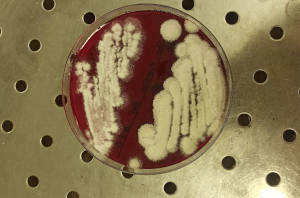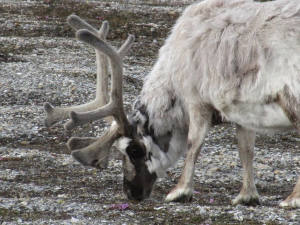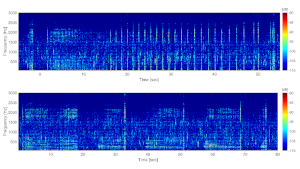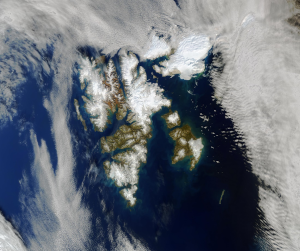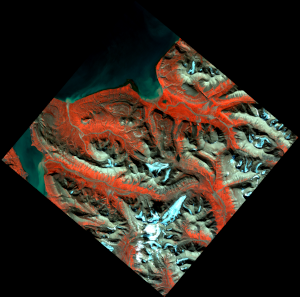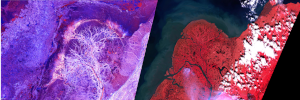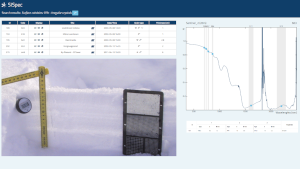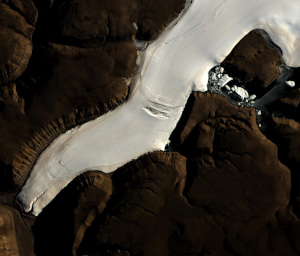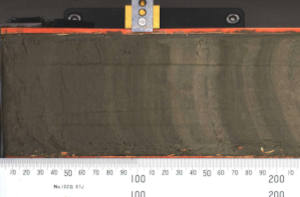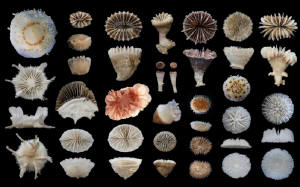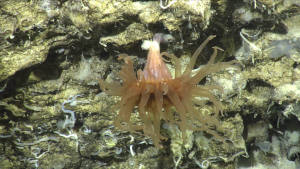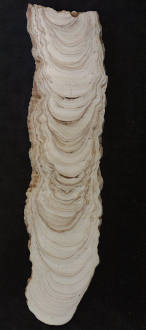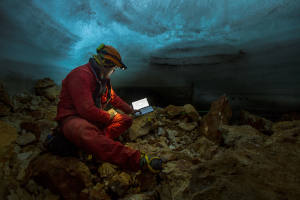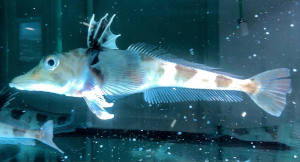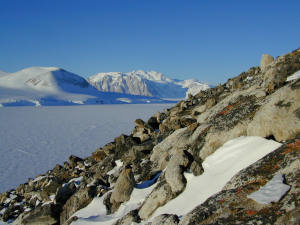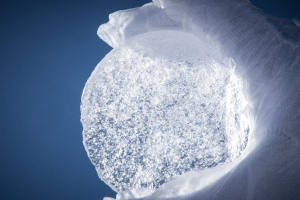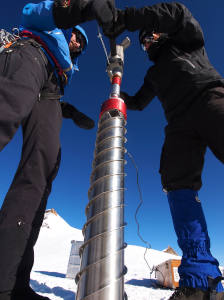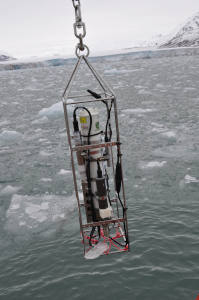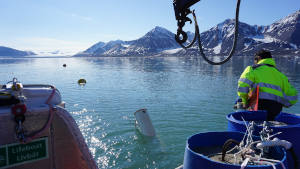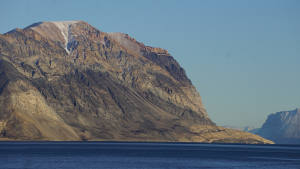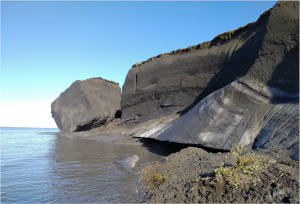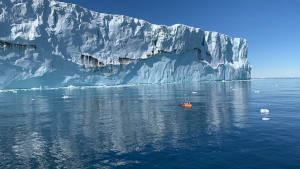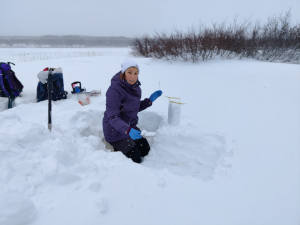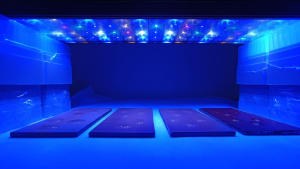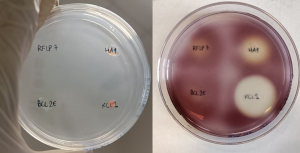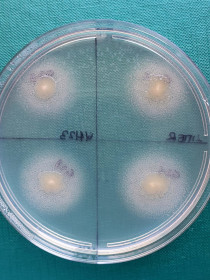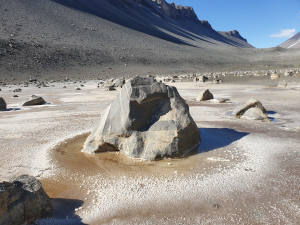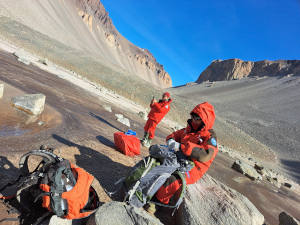English_content
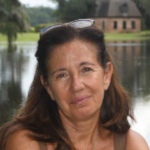 Laura Zucconi Galli Fonseca (h-index 33) is Associate Professor in Botany from 2005. She has been involved in Antarctic Research projects from 1992 both as PI or responsible of RU, as well as in projects in other extreme environments, as the Arctic (INTERACT-Horizon 2020) and Alps (PRIN 2015, PRIN 2019, PRIN 2022). She joined the 2014 Arctic expedition (Ny-Ålesund) and six Italian Antarctic Expeditions (XIX, XXVI, XXXI, XXXIII, XXXV, XXXVII), appointed by the Italian National Research Council (CNR) as Scientific Coordinator of the research activities carried out at the Italian Base during the XXVI, XXXV, and XXXVII Expeditions. Member of the Editorial Board of Section ‘Extreme Microbiology’ in Frontiers in Microbiology. Guest Associate Editor of two topics for Frontiers in Microbiology and two topics for Biology (MDPI).
Laura Zucconi Galli Fonseca (h-index 33) is Associate Professor in Botany from 2005. She has been involved in Antarctic Research projects from 1992 both as PI or responsible of RU, as well as in projects in other extreme environments, as the Arctic (INTERACT-Horizon 2020) and Alps (PRIN 2015, PRIN 2019, PRIN 2022). She joined the 2014 Arctic expedition (Ny-Ålesund) and six Italian Antarctic Expeditions (XIX, XXVI, XXXI, XXXIII, XXXV, XXXVII), appointed by the Italian National Research Council (CNR) as Scientific Coordinator of the research activities carried out at the Italian Base during the XXVI, XXXV, and XXXVII Expeditions. Member of the Editorial Board of Section ‘Extreme Microbiology’ in Frontiers in Microbiology. Guest Associate Editor of two topics for Frontiers in Microbiology and two topics for Biology (MDPI).
Her scientific activity focuses on microbial ecology, in particular on Antarctic soil and cryptoendolithic communities distribution, biodiversity and adaptation to different stresses. In the last years, her research is being extended in a deeper analysis of soil microbial communities through molecular approaches, to describe the effects of environmental conditions on their composition, functionality and adaptability. Her research activities range among different fields: systematic and taxonomy of filamentous fungi, ultrastructural morphology, molecular biology, astrobiology, adaptive responses to stress conditions – including real and simulated space conditions – of both single species and whole fungal communities.
![]() http://orcid.org/0000-0001-9793-2303 Web of Science ResearcherID: U-9781-2018
http://orcid.org/0000-0001-9793-2303 Web of Science ResearcherID: U-9781-2018
 She obtained a Bachelor's and Master's degree in Computer Engineering at the University of Florence and a Ph.D. in Information Engineering (nonlinear dynamics and complex systems) at the same University. She later worked as a post-doc fellow at the CNR Bioeconomy Institute. She currently holds the role of technologist at the Institute of Polar Sciences of the CNR, based in Bologna, collaborating on the data management and administration of the IT infrastructures of the NADC (National Antarctic Data Center) and IADC (Italian Arctic Data Center) projects. Thanks to experience in the field of data management and their analysis also through machine learning techniques, it helps researchers publish and share the data collected from research, making them compatible with modern standards and adhering to the principles of data FAIRness and Open Science.
She obtained a Bachelor's and Master's degree in Computer Engineering at the University of Florence and a Ph.D. in Information Engineering (nonlinear dynamics and complex systems) at the same University. She later worked as a post-doc fellow at the CNR Bioeconomy Institute. She currently holds the role of technologist at the Institute of Polar Sciences of the CNR, based in Bologna, collaborating on the data management and administration of the IT infrastructures of the NADC (National Antarctic Data Center) and IADC (Italian Arctic Data Center) projects. Thanks to experience in the field of data management and their analysis also through machine learning techniques, it helps researchers publish and share the data collected from research, making them compatible with modern standards and adhering to the principles of data FAIRness and Open Science.
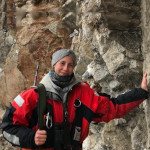 Bachelor in Biology at the Neuchâtel University, Switzerland, and Master of Science in Ecology and Conservation at the University of Groningen, Netherlands. Currently working for the CNR – Institute of Polar Sciences (CNR – ISP) in Venezia Mestre. She is Station Leader of the Italian Arctic station Dirigibile Italia in Ny-Ålesund, Svalbard. As Station Leader, she works daily on the field and in the lab, besides taking care of some parts of the station’s administration.
Bachelor in Biology at the Neuchâtel University, Switzerland, and Master of Science in Ecology and Conservation at the University of Groningen, Netherlands. Currently working for the CNR – Institute of Polar Sciences (CNR – ISP) in Venezia Mestre. She is Station Leader of the Italian Arctic station Dirigibile Italia in Ny-Ålesund, Svalbard. As Station Leader, she works daily on the field and in the lab, besides taking care of some parts of the station’s administration.
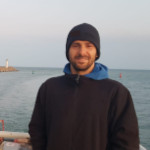 Dr. Francesco Paladini de Mendoza's research focuses mainly on the dynamic processes at the water-sediment interface triggered by littoral and deep bottom currents. Over time, he has gained much experience in field measurements and management of instruments and platforms for monitoring the chemical and physical properties of the marine environment. He actively participates in the management of some observational network infrastructures (EMSO-ERIC and SiOS). He has published 21 scientific papers emphasizing measurement and multidisciplinary approach in the study of the marine environment. He has participated in oceanographic and geological-marine expeditions in the Mediterranean Sea and Oceans, accumulating more than 400 operational days at sea.
Dr. Francesco Paladini de Mendoza's research focuses mainly on the dynamic processes at the water-sediment interface triggered by littoral and deep bottom currents. Over time, he has gained much experience in field measurements and management of instruments and platforms for monitoring the chemical and physical properties of the marine environment. He actively participates in the management of some observational network infrastructures (EMSO-ERIC and SiOS). He has published 21 scientific papers emphasizing measurement and multidisciplinary approach in the study of the marine environment. He has participated in oceanographic and geological-marine expeditions in the Mediterranean Sea and Oceans, accumulating more than 400 operational days at sea.
![]() http://orcid.org/0000-0002-9495-3878
http://orcid.org/0000-0002-9495-3878
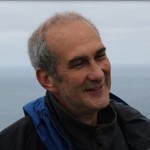 Roberto Colombo is professor of Remote Sensing at the Department of Environmental Sciences, University of Milano Bicocca. The main research interest is to develop remote sensing tools for quantitative estimation of land surface properties. He works with a wide range of Earth Observation data at different scales and geophysical methods, assimilating multi-source, multi-spectral and multi-temporal remote sensing data, from field spectroscopy to satellite level for modelling terrestrial and environmental dynamics, with focus on vegetation fluorescence and snow properties. Current activities include space mission concepts and definition, airborne campaigns and field cal/val strategies, engineering and design of proximal remote sensing instruments, algorithm development, environmental modelling and new applications.
Roberto Colombo is professor of Remote Sensing at the Department of Environmental Sciences, University of Milano Bicocca. The main research interest is to develop remote sensing tools for quantitative estimation of land surface properties. He works with a wide range of Earth Observation data at different scales and geophysical methods, assimilating multi-source, multi-spectral and multi-temporal remote sensing data, from field spectroscopy to satellite level for modelling terrestrial and environmental dynamics, with focus on vegetation fluorescence and snow properties. Current activities include space mission concepts and definition, airborne campaigns and field cal/val strategies, engineering and design of proximal remote sensing instruments, algorithm development, environmental modelling and new applications.
 Research associate at CNR-ISP, Bologna.
Research associate at CNR-ISP, Bologna.
B.Sc. in Geology (2014) at the University of Bologna, M.Sc. degree (2016) in Earth Sciences at the Swiss Federal Institute of Technology (ETH Zurich), Switzerland and PhD (2021) in geochemistry at ETH Zurich and the Max Planck Institute for Chemistry, Mainz, Germany.
His research is centred around the study of biogeochemical cycling of nutrients in the modern marine environment, and their reconstruction in the geological past. His study addresses some fundamentals aspects of the nitrogen cycle and its interconnections with the trophic structure of marine food webs and ocean oxygenation. In particular, he works on the development and application of geochemical methods aimed at analysis and interpretation of the nitrogen isotope composition (15N/14N) of organic matter trapped within the biomineral crystalline matrix of fossils and modern organisms, as well as on organic matter from phytoplankton and zooplankton and seawater nitrate.
He has been studying and working in research institutes abroad for a total of 8 years and he is currently associated as a postdoctoral researcher at the Max Planck Institute for Chemistry. He is involved in 8 publications on international journals, 2 chapters books of the International Ocean Drilling Program (IODP) and 17 abstracts. He obtained a scholarship award from the Swiss Federal Institute of Technology, and research funding from the International Long Term Ecological Research (ILTER) network and the Max Planck Society. He participated in IODP expedition 383 to the Antarctic Ocean aboard R/V JOIDES Resolution.
![]() https://orcid.org/0000-0002-6772-7269
https://orcid.org/0000-0002-6772-7269
ISP's research activities take place, mainly though not exclusively, in Antarctica and the Arctic, where snow and ice are the dominant aspect of the landscape. These regions, more than others, are affected by climate change. Understanding the history of our planet, and how human activities, from the origins of the first civilizations to the present day, have influenced ecosystems, by interacting and modifying the delicate balances that govern the earth's climate system, is the challenge we face. The history enclosed and preserved in ice and, going even further back in time, in sediments, even in times before the appearance of man, is an important topic addressed by ISP researchers.
Mute witnesses of these changes are the polar biological communities: on them the anthropic impact can be devastating. It is essential to improve our knowledge of their current state, to understand their evolution, with a view to future research missions in space. In fact, some polar habitats represent important terrestrial laboratories for astrobiological studies.
All these activities, and many others, are deepened in the thematic areas that characterize the institute.
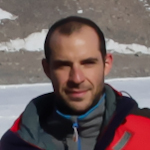 Master’s degree in Marine Biology at the University of Padova; PhD student at the University of Bologna (FishMed-PhD).
Master’s degree in Marine Biology at the University of Padova; PhD student at the University of Bologna (FishMed-PhD).
Since 2015 he has been working on national fishery monitoring programs, within the EU-Data Collection Framework, funded by scholarships of Ancona National Research Council (CNR). From 2015 he also has been participating in marine research activities of the Padova University, at the Hydrobiological Station of Chioggia. His fields of interest are inherent to the biological life cycles of commercial fish species of the Mediterranean and the Antarctic areas (notothenioids). In particular, he investigated reproductive traits of these species thought histological analyses of gonads, age structure/growth cycle by means of otoliths’ readings and some trophic features using the stomach content analyses.
He collaborated in more than 10 scientific trawl surveys in Italian water and joined the 38th Italian expedition to Antarctica (2022/2023).
Google Scholar Scopus - Author ID: 57192875066 Research Gate: Federico Calì
 Environmental scientist, graduated at the University of Bologna.
Environmental scientist, graduated at the University of Bologna.
Since 2022 she is PhD student in Polar Science at the university Ca'Foscari (Venice), with a focus on the photochemistry of mercury at snow-air interface in polar regions.
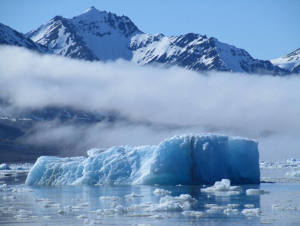 The research activities carried out within the Thematic Area Contaminants and Ecosystems are aimed at studying the sources, transport dynamics, diffusion and fate of regulated and emerging contaminants, including micro/nano-plastics and trace elements, in polar ecosystems. These ecosystems are particularly sensitive to external perturbations, such as human activities and climate change. In fact, the Polar regions constitute the final sink for many pollutants emitted at mid-latitudes and transported on a regional and global scale (long-range) through atmospheric and oceanic circulation and migratory animals: all drivers influenced by the ongoing climate change. Global warming has also favored a growing anthropic impact in the polar areas due to the development of tourist activities, mining and maritime traffic with a consequent increase in the local input of contamination, including noise pollution. The direct and indirect effects of these changes combined with the different dynamics of contamination are causing the fragmentation and destruction of habitats, the alteration of aquatic and terrestrial food webs, as well as loss of diversity with repercussions also on Arctic populations.
The research activities carried out within the Thematic Area Contaminants and Ecosystems are aimed at studying the sources, transport dynamics, diffusion and fate of regulated and emerging contaminants, including micro/nano-plastics and trace elements, in polar ecosystems. These ecosystems are particularly sensitive to external perturbations, such as human activities and climate change. In fact, the Polar regions constitute the final sink for many pollutants emitted at mid-latitudes and transported on a regional and global scale (long-range) through atmospheric and oceanic circulation and migratory animals: all drivers influenced by the ongoing climate change. Global warming has also favored a growing anthropic impact in the polar areas due to the development of tourist activities, mining and maritime traffic with a consequent increase in the local input of contamination, including noise pollution. The direct and indirect effects of these changes combined with the different dynamics of contamination are causing the fragmentation and destruction of habitats, the alteration of aquatic and terrestrial food webs, as well as loss of diversity with repercussions also on Arctic populations.
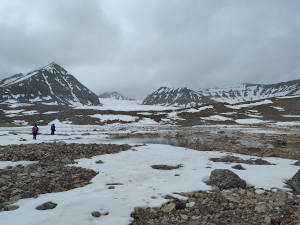 In this context, the multidisciplinary skills that converge in this Thematic Area constitutes an indispensable requirement for understanding the effects due to anthropic impact and climate change in polar ecosystems by following a One Health approach and aiming at a sustainable management of these vulnerable environments in the near future.
In this context, the multidisciplinary skills that converge in this Thematic Area constitutes an indispensable requirement for understanding the effects due to anthropic impact and climate change in polar ecosystems by following a One Health approach and aiming at a sustainable management of these vulnerable environments in the near future.
The main lines of investigation refer to the following areas: development and optimization of highly sensitive analytical methods for the detection of pollutants in the abiotic and biotic environmental compartments, understanding of transport and distribution processes in ecosystems, evaluation of the interactions with biota and the ecological effects, study of the capability of ecosystems to adapt and respond to contamination.
Main ERC panels:
• LS8 - Environmental Biology, Ecology and Evolution
• PE4 - Physical and Analytical Chemical Sciences
• PE10 - Earth System Science
Referents: Elena Barbaro, Maria Papale, Luisa Patrolecco, Francesca Spataro
Contact: info-impacts AT isp.cnr.it
Sottotematiche
Legacy and emerging polluntants
From the development of analytical methods to the study of environmental processes
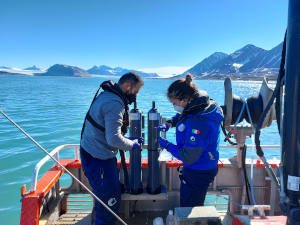 Despite the geographical isolation and limited human presence, polar regions are strongly affected by long-range transport leading to the dispersion of pollutants emitted in low and medium latitudes and on a local scale. Scientific research efforts have allowed the collection of long-term data on the presence of heavy metals and persistent organic contaminants (POPs) in the Arctic; however, there are still no systematic monitoring programs for such compounds in Antarctica.
Despite the geographical isolation and limited human presence, polar regions are strongly affected by long-range transport leading to the dispersion of pollutants emitted in low and medium latitudes and on a local scale. Scientific research efforts have allowed the collection of long-term data on the presence of heavy metals and persistent organic contaminants (POPs) in the Arctic; however, there are still no systematic monitoring programs for such compounds in Antarctica.
More recently, attention has been focused on new classes of contaminants, defined as emerging, because they are not yet included in current regulations. The effects of these compounds on the organisms and environment are still not fully known. The determination of the occurrence of these substances in the environment and the evaluation of their effects on ecosystems is an important scientific challenge, especially considering their different chemical-physical properties and the continuous production of new formulations. Since many emerging contaminants are bioactive molecules with potentially harmful effects on the organisms and environment even at low concentrations, the development of suitable monitoring programs has crucial importance. The Arctic Monitoring and Evaluation Program (AMAP) has indicated that the risk due to the presence of emerging chemical pollutants but also the more investigated persistent organic pollutants (POPs) and mercury at the poles is still very high. Therefore, it is of priority interest to deepen the knowledge of this issue in the polar areas.
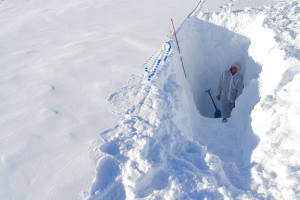 The main research activities concern:
The main research activities concern:
• Optimization, and standardization of analytical methods for the determination of legacy pollutants (e.g. PAHs, PCBs, PBDEs, organo-chlorinated pesticides, etc.), emerging (e.g. pharmaceutical residues, fragrances, perfluorinated compounds, new generation pesticides, etc.) compounds and their metabolites/transformation products. Suspect screening analysis (performed when there is evidence/information that a given structure could be present in the samples) and non-target screening (analysis of all detected components, when no preliminary information is available).
• Development of chemical speciation methods for the identification of biologically active species or species produced by photochemical reactions.
• Continuous and long-term monitoring of organic and inorganic contaminants transported by atmospheric (Gruvebadet - Aerosol laboratory) and oceanic currents (Mooring) via permanent platforms.
• Studies on bioconcentration / biomagnification in the food web (screening assessment); evaluation of antibiotic susceptibility profiles of bacterial strains isolated from water/sediment.
• In-situ and real-time monitoring of organic and inorganic contaminants by using biosensors.
• Development and application of metabolomic analysis in environmental matrices for the study of degradative processes that determine the production of potentially polluting metabolites; this approach makes it possible to identify the presence of unknown pollutants and to relate them to the biological processes taking place in the system.
• Laboratory scale studies (e.g., microcosm and batch) to evaluate biotic and abiotic (chemical and physical) degradation processes (DT50 calculation), formation of metabolites and transformation products, and bioaccumulation in target organisms (vegetable and animal species).
• Optimization, standardization and validation of innovative biotechnologies for the in situ bioremediation and bio-mitigation of environmental matrices impacted by organic and inorganic contaminants.
Main ERC Panels:
• PE4_5 - Analytical chemistry
• PE4_7 - Chemical instrumentation
• PE4_9 - Method development in chemistry
• PE4_18 - Environment Chemistry
• PE10_1 - Atmospheric chemistry, atmospheric composition, air pollution
• PE10_8 - Oceanography (physical, chemical, biological, geological)
• PE10_9 - Biogeochemistry, biogeochemical cycles, environmental chemistry
• PE10_17 - Hydrology, hydrogeology, engineering and environmental geology, water and soil pollution
More...
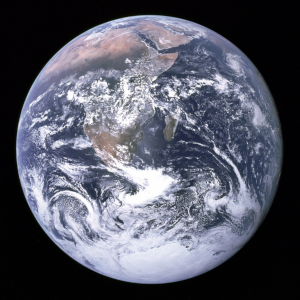 The main activities of the thematic area Earth Observation (EO) and Polar Ecosystem Modeling include remote and proximal sensing, spatial analysis, thematic mapping, and geographic and environmental knowledge organization. The activity focuses on three main methodological pillars: remote and in situ observations, information organization, and representation by numerical and conceptual models.
The main activities of the thematic area Earth Observation (EO) and Polar Ecosystem Modeling include remote and proximal sensing, spatial analysis, thematic mapping, and geographic and environmental knowledge organization. The activity focuses on three main methodological pillars: remote and in situ observations, information organization, and representation by numerical and conceptual models. 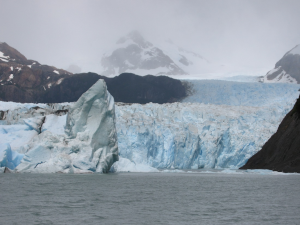 The research of this thematic area focuses on the responses of polar ecosystems to changes in air and sea temperature, in polar ice caps, in sea level height, and in persistence and thickness of snowpack and ice, also through the comparisons of climate belts. Analyses also cover permafrost evolution, coastal erosion, accretion processes, release and segregation of climate-altering gases, biogeochemical cycles, and biodiversity. The observational methodologies aim to detect environmental and climate dynamics at different spatial and temporal scales by identifying and studying multiple essential variables and their biological and geophysical interactions by integrating information from different platforms. The continuous comparison allows the combination of spatial and ecological models with observations.
The research of this thematic area focuses on the responses of polar ecosystems to changes in air and sea temperature, in polar ice caps, in sea level height, and in persistence and thickness of snowpack and ice, also through the comparisons of climate belts. Analyses also cover permafrost evolution, coastal erosion, accretion processes, release and segregation of climate-altering gases, biogeochemical cycles, and biodiversity. The observational methodologies aim to detect environmental and climate dynamics at different spatial and temporal scales by identifying and studying multiple essential variables and their biological and geophysical interactions by integrating information from different platforms. The continuous comparison allows the combination of spatial and ecological models with observations.
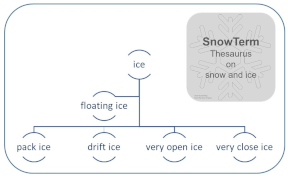 The team has a group dedicated to organizing multilingual terminological knowledge, thesauri, and metadata to support data description and environmental information, focusing on polar environments. The subject area develops, by Findable Accessible Interoperable Reusable (FAIR) principles, data chains and products to support the study of terrestrial, aquatic, and cryosphere systems and the development of interoperable GIS, thematic mapping, and operational services. Figure 1: the Spegazzini Glacier (Los Glaciares National Park, Santa Cruz, Argentina, January 2010), together with the Upsala and the Perito Moreno Glaciers, feeds the Lago Argentino in the Los Glaciares National Park, in this photo, the calving-type glacier front is visible, characterized by abundant seracs, which can reach 135 m in height.
The team has a group dedicated to organizing multilingual terminological knowledge, thesauri, and metadata to support data description and environmental information, focusing on polar environments. The subject area develops, by Findable Accessible Interoperable Reusable (FAIR) principles, data chains and products to support the study of terrestrial, aquatic, and cryosphere systems and the development of interoperable GIS, thematic mapping, and operational services. Figure 1: the Spegazzini Glacier (Los Glaciares National Park, Santa Cruz, Argentina, January 2010), together with the Upsala and the Perito Moreno Glaciers, feeds the Lago Argentino in the Los Glaciares National Park, in this photo, the calving-type glacier front is visible, characterized by abundant seracs, which can reach 135 m in height.
Main ERC Panels:
• LS8 - Environmental Biology, Ecology and Evolution
• PE10 - Earth System Science
• SH7 - Human Mobility, Environment, and Space
• SH2 - Institutions, Values, Environment and Space
Referents: Francesco De Biasio, Francesco Filiciotto, Emiliana Valentini, Matteo Zucchetta
Contacts: info-observation AT isp.cnr.it
Sub-Theme
Atmosphere
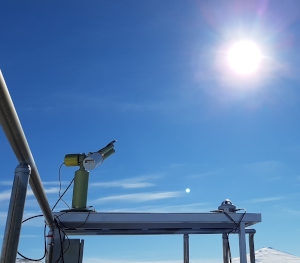 Characterization of the atmospheric column by remote sensing techniques and study of aerosol at the interface with the ground, use of EO data and their validation with ground-based measurements. Atmospheric chemistry, microchemistry, and climate-altering microphysics (use of thematic products of fire emissions and air pollution); physics of the atmosphere by point measurements at permanent observatories in polar and high-altitude areas, both fixed and mobile (ships); bioaerosol and its quantitative and qualitative composition. Study of the spatial structure of wind over the sea at various resolutions (from tens of km to 500 m) obtained through radar echo detections from the sea surface and Synthetic Aperture Radar (SAR) satellite images, integrated with artificial intelligence (AI) techniques in a continuous comparison with ground truth and numerical modeling.
Characterization of the atmospheric column by remote sensing techniques and study of aerosol at the interface with the ground, use of EO data and their validation with ground-based measurements. Atmospheric chemistry, microchemistry, and climate-altering microphysics (use of thematic products of fire emissions and air pollution); physics of the atmosphere by point measurements at permanent observatories in polar and high-altitude areas, both fixed and mobile (ships); bioaerosol and its quantitative and qualitative composition. Study of the spatial structure of wind over the sea at various resolutions (from tens of km to 500 m) obtained through radar echo detections from the sea surface and Synthetic Aperture Radar (SAR) satellite images, integrated with artificial intelligence (AI) techniques in a continuous comparison with ground truth and numerical modeling.
The Anthropocene Epoch is a novel, yet unofficial, unit of geologic time, used to describe the most recent period in Earth’s history when human activity started to have a significant impact on the planet’s climate and ecosystems. The Anthropocene is also a period characterized by an unprecedented technology level that allows us to measure essential variables of the climate system (ECVs) at high temporal resolution (e.g. satellites) and forecast future climate scenarios using state-of-the-art supercomputers based on Shared Socioeconomic Pathways (SSPs). However, instrumental records exist only since the mid XX century while simulations are time-limited to a few centuries. Thus, it remains elusive whether the documented and predicted changes are part of the long-term natural variability of the climate system. In this respect, climate archives such as ice cores, marine/lake sediment cores, corals, speleothems and tree-rings offer an extraordinary perspective of the past climate evolution and, thus, they represent a fundamental benchmark to place on-going climate change into a larger context of long-term natural climate variability. In particular, the past climate is punctuated by important climate events that can be used as examples (not necessarily analogues) to assess the rate of natural changes and understand the interactions between critical components of the climate system including external and internal forcings. Thus, paleo-climatology is a fundamental research field for the study of the Anthropocene as it provides insight into how Earth's climate system works and how it may change in the future. This, ultimately, improves climate models by lowering uncertainties on future projections.
Natural archives of past climate history are pillars for paleoclimatologists as they literally represent time machines. Scientists look for clues of past events in these records as biological, geochemical, and sedimentary indicators used for the empirical quantification of climatic and environmental parameters, something generally referred to as proxies. Each type of archive comes with its benefits and drawbacks. Thus, paleo-studies greatly benefit from the integration of complementary archives together to have an interdisciplinary overview on how the climate system works.
Main ERC Panels:
• PE4_5 - Analytical chemistry
• PE4_18 - Environment chemistry
• PE10_1 - Atmospheric chemistry, atmospheric composition, air pollution
• PE10_3 - Climatology and climate change
• PE10_6 - Palaeoclimatology, palaeoecology
• PE10_8 - Oceanography (physical, chemical, biological, geological)
• PE10_9 - Biogeochemistry, biogeochemical cycles, environmental chemistry
• PE10_11 - Geochemistry, cosmochemistry, crystal chemistry, isotope geochemistry, thermodynamics
• PE10_18 - Cryosphere, dynamics of snow and ice cover, sea ice, permafrosts and ice sheets
Referents: Andrea Spolaor, Tommaso Tesi
Contact: info-paleoclimate AT isp.cnr.it
Sub-themes
Ice cores
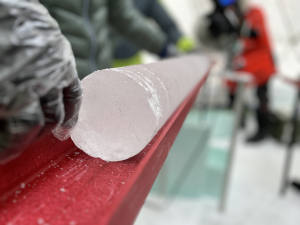 Ice cores are among the best resolved archives of the past Earth climate to the point that it is possible to describe even seasonal climate oscillations. They are drilled on mountain glaciers and ice sheets, where year-round below freezing temperatures allow undisturbed solid deposition and preservation of the original stratigraphy. Ice cores recovered from Antarctica and Greenland provide the oldest records, covering respectively the last 800 000 and 125 000 years. Yet, important climate information can also be extracted from non-polar glaciers such in the Alpine, Andes and the Himalaya regions. Among the climatic information, ice core analyses can give insight to past temperatures, volcanism, winds, precipitation, aridity, solar activity, change in biogeochemical cycle and atmospheric composition. In particular, ice core records are valuable paleo archives for the past atmospheric composition since the ice can trap the chemical compounds and their abundance as well as the gasses concentration, preserved in the ice as air bubbles of an ancient atmosphere. Physical properties of the ice layers identified in the core can also be studied and provide the past history of ice sheet dynamics.
Ice cores are among the best resolved archives of the past Earth climate to the point that it is possible to describe even seasonal climate oscillations. They are drilled on mountain glaciers and ice sheets, where year-round below freezing temperatures allow undisturbed solid deposition and preservation of the original stratigraphy. Ice cores recovered from Antarctica and Greenland provide the oldest records, covering respectively the last 800 000 and 125 000 years. Yet, important climate information can also be extracted from non-polar glaciers such in the Alpine, Andes and the Himalaya regions. Among the climatic information, ice core analyses can give insight to past temperatures, volcanism, winds, precipitation, aridity, solar activity, change in biogeochemical cycle and atmospheric composition. In particular, ice core records are valuable paleo archives for the past atmospheric composition since the ice can trap the chemical compounds and their abundance as well as the gasses concentration, preserved in the ice as air bubbles of an ancient atmosphere. Physical properties of the ice layers identified in the core can also be studied and provide the past history of ice sheet dynamics.
Changes and evolution of polar systems: processes, feedback mechanisms and interactions on a global scale
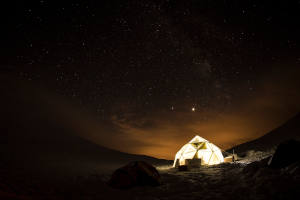 The Earth system is highly interconnected. In this thematic area research activities are aimed at deepening our understanding of the processes and interactions among the different components of the climate system and assessing its responses to global changes. A more comprehensive and holistic understanding of the polar system is needed to guide future climate policy decisions. The knowledge of the characteristics of the polar atmosphere is crucial for studying the biogeochemical cycles of natural chemical species, the long-range transport processes of pollutants and climate-altering compounds and the feedback mechanisms triggered by the atmospheric warming and the interaction of the atmosphere with the cryosphere and oceans.
The Earth system is highly interconnected. In this thematic area research activities are aimed at deepening our understanding of the processes and interactions among the different components of the climate system and assessing its responses to global changes. A more comprehensive and holistic understanding of the polar system is needed to guide future climate policy decisions. The knowledge of the characteristics of the polar atmosphere is crucial for studying the biogeochemical cycles of natural chemical species, the long-range transport processes of pollutants and climate-altering compounds and the feedback mechanisms triggered by the atmospheric warming and the interaction of the atmosphere with the cryosphere and oceans.
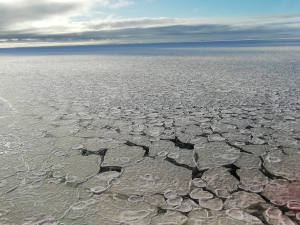 The cryosphere constitutes a very fragile portion of the Earth system, made even more vulnerable by climate change. Through multidisciplinary and interconnected research activities, the study of snow and ice, their chemical composition and their main physical parameters, the evolution of the permafrost and the increased melting impact on the atmosphere, biosphere and hydrosphere at both regional and global levels is being pursued.
The cryosphere constitutes a very fragile portion of the Earth system, made even more vulnerable by climate change. Through multidisciplinary and interconnected research activities, the study of snow and ice, their chemical composition and their main physical parameters, the evolution of the permafrost and the increased melting impact on the atmosphere, biosphere and hydrosphere at both regional and global levels is being pursued.
The hydrosphere consists largely of the oceans, which influence the Earth system in all its spheres by storing and redistributing fresh water, heat, climate-altering gases, and other particulate and dissolved substances. Oceanographic research supports more accurate predictions of global changes by studying the chemical and physical properties of seas and oceans, their movements, energy exchanges with the atmosphere, the organisms that inhabit them, and the geological structure of ocean basins. Polar limnological environments are studied as both sentinels of climate change and to investigate the responses of their short trophic net to these changes, including anthropogenic perturbations.
Polar ecosystems are an important reservoir of natural resources and can partly mitigate the effects of climate change from which they are threatened today. The study of biodiversity and resilience to global changes with an ecosystem approach, integrating the influence of environmental factors, community-level interspecific relationships, and socio-economic aspects is a challenge for effective and sustainable management of natural resources.
Main ERC Panels:
• LS8 - Ecology, Evolution and Environmental Biology
• PE4 - Physical and Analytical Chemical Sciences
• PE10 - Earth System Science
• SH2 - Institutions, Values, Environment and Space
• SH7 - Human Mobility, Environment, and Space
Referentes: Nicoletta Ademollo, Maurizio Azzaro, Fabiana Corami, Federico Giglio, Stefania Gilardoni
Contact: info-polarchanges AT isp.cnr.it
Sub-themes
Atmosphere
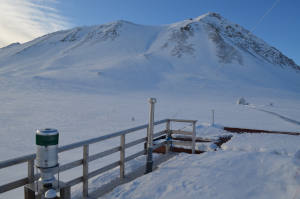 The atmosphere as an environmental matrix proves to be a medium of rapid global dispersion of climate-altering compounds and pollutants. Various compounds characterize the atmosphere; among these, climate-altering compounds, i.e., greenhouse gases that affect the Earth's energy and heat balance, and atmospheric aerosols, are of relevant interest. Due to its characteristics of stability and thermal inversion and the presence of the polar vortex, the polar atmosphere is an ideal observatory to be able to assess the energy exchanges and interactions of various phenomena with atmospheric circulation, including at different spatiotemporal scales, transport to high latitudes, aerosol composition, and biogeochemical cycles of the natural chemical species and pollutants present. Atmospheric aerosols play a key role in human-induced climate change because they influence the planet's radiative budget (absorption and scattering of solar radiation and surface albedo), cloud formation, and properties. In particular, atmospheric aerosols influence and amplify climate change. Atmospheric particulate matter consists of particles of natural origin (volcanic eruptions, fires, ocean emissions, resuspension of soil dust) and particles of anthropogenic origin (industrial emissions, combustion processes, micro- and nanoplastics). It is critical, thus, to identify chemical, biochemical, and biological tracers to study the origin and composition of polar aerosols and understand their climatic feedback. Although present in trace amounts, organic compounds, black carbon, sea salt, and microplastics (< 100 µm) may act as cloud condensation nuclei, thereby affecting albedo and precipitation, as well as radiation budget and climate. Black carbon, microplastics, and dust could also act as ice-nucleating particles.
The atmosphere as an environmental matrix proves to be a medium of rapid global dispersion of climate-altering compounds and pollutants. Various compounds characterize the atmosphere; among these, climate-altering compounds, i.e., greenhouse gases that affect the Earth's energy and heat balance, and atmospheric aerosols, are of relevant interest. Due to its characteristics of stability and thermal inversion and the presence of the polar vortex, the polar atmosphere is an ideal observatory to be able to assess the energy exchanges and interactions of various phenomena with atmospheric circulation, including at different spatiotemporal scales, transport to high latitudes, aerosol composition, and biogeochemical cycles of the natural chemical species and pollutants present. Atmospheric aerosols play a key role in human-induced climate change because they influence the planet's radiative budget (absorption and scattering of solar radiation and surface albedo), cloud formation, and properties. In particular, atmospheric aerosols influence and amplify climate change. Atmospheric particulate matter consists of particles of natural origin (volcanic eruptions, fires, ocean emissions, resuspension of soil dust) and particles of anthropogenic origin (industrial emissions, combustion processes, micro- and nanoplastics). It is critical, thus, to identify chemical, biochemical, and biological tracers to study the origin and composition of polar aerosols and understand their climatic feedback. Although present in trace amounts, organic compounds, black carbon, sea salt, and microplastics (< 100 µm) may act as cloud condensation nuclei, thereby affecting albedo and precipitation, as well as radiation budget and climate. Black carbon, microplastics, and dust could also act as ice-nucleating particles. 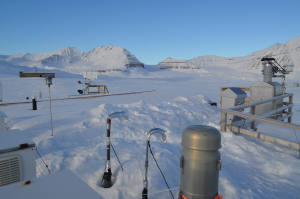 The presence of these particles in the atmosphere and sea ice impacts albedo and can alter sea ice permeability and solar radiation absorption with feedback on sea ice melt. In a rapidly changing polar area like the Arctic, microplastic pollution adds to the effects of climate change in terms of sources, transport processes, feedback, and ecological consequences. Other stressors present in atmospheric aerosols may include medium volatile organic compounds, water-soluble compounds, phenolic compounds, and trace elements. The presence of chemical stressors affects the physical dynamics of the atmosphere, mainly through interaction with both solar and terrestrial radiation, helping to amplify the increase in air temperature, which in turn impacts sea ice melting, humidity, cloudiness, and precipitation, significantly affecting the climate system. Monitoring the physical parameters and processes and the dynamics of the atmosphere through the use of various measurement methodologies (including remote sensing) is essential for the in-depth understanding of the synergies between the various components and for developing increasingly efficient weather-climate forecasting models. It is necessary to study in depth all the processes that characterize the atmospheric boundary layer to improve the quality of the results of weather and climate forecasting models.
The presence of these particles in the atmosphere and sea ice impacts albedo and can alter sea ice permeability and solar radiation absorption with feedback on sea ice melt. In a rapidly changing polar area like the Arctic, microplastic pollution adds to the effects of climate change in terms of sources, transport processes, feedback, and ecological consequences. Other stressors present in atmospheric aerosols may include medium volatile organic compounds, water-soluble compounds, phenolic compounds, and trace elements. The presence of chemical stressors affects the physical dynamics of the atmosphere, mainly through interaction with both solar and terrestrial radiation, helping to amplify the increase in air temperature, which in turn impacts sea ice melting, humidity, cloudiness, and precipitation, significantly affecting the climate system. Monitoring the physical parameters and processes and the dynamics of the atmosphere through the use of various measurement methodologies (including remote sensing) is essential for the in-depth understanding of the synergies between the various components and for developing increasingly efficient weather-climate forecasting models. It is necessary to study in depth all the processes that characterize the atmospheric boundary layer to improve the quality of the results of weather and climate forecasting models.
Main ERC Panels:
• LS8 - Ecology, Evolution and Environmental Biology
• PE4 - Physical and Analytical Chemical Sciences
• PE10 - Earth System Science
• SH2 - Institutions, Values, Environment and Space
• SH7 - Human Mobility, Environment, and Space
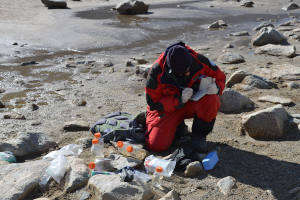 The Biosciences thematic area deals with the study of the biosphere in polar areas at different levels of biological complexity, from molecules to ecosystems and up to biomes. In particular, the attention is focused on the description and quantification of the biodiversity of the organisms that inhabit polar environments, to evaluate their structural and functional complexity. In this regard, scenarios of population shifts, changes in biodiversity and biogeochemical processes deriving from climate change and human impact are evaluated. The main interest is focused on the interactions between biological and ecological aspects, together with abiotic processes and effects on the carbon cycle and energy flows in the polar regions. Further fields of investigation concern the research of biomolecules of microbial origin, the ability of polar microorganisms to degrade organic contaminants and astrobiological aspects linked to life in extreme environments.
The Biosciences thematic area deals with the study of the biosphere in polar areas at different levels of biological complexity, from molecules to ecosystems and up to biomes. In particular, the attention is focused on the description and quantification of the biodiversity of the organisms that inhabit polar environments, to evaluate their structural and functional complexity. In this regard, scenarios of population shifts, changes in biodiversity and biogeochemical processes deriving from climate change and human impact are evaluated. The main interest is focused on the interactions between biological and ecological aspects, together with abiotic processes and effects on the carbon cycle and energy flows in the polar regions. Further fields of investigation concern the research of biomolecules of microbial origin, the ability of polar microorganisms to degrade organic contaminants and astrobiological aspects linked to life in extreme environments.
The central themes of the research carried out within the Biosciences Thematic Area are (1) structural and functional organization of polar ecosystems and dynamics of populations and communities; (2) response of individuals, populations and communities to external influences of climatic and anthropogenic origin (including loss and fragmentation of habitat, withdrawal, extraction, pollution, etc.); (3) biotechnological implications deriving from adaptation to low temperatures and/or other physical-chemical factors.
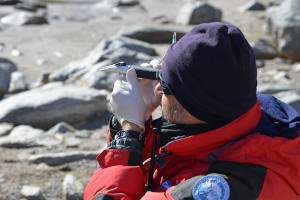 Research objectives include:
Research objectives include:
• the study of structural and functional diversity and the ecophysiology of polar organisms, to shed light on the limits of adaptation, also in relation to climate change and human impacts;
• the study of biogeochemistry and ecology in marine and terrestrial habitats at the Poles, including the environmental factors controlling biological interactions;
• the estimation of the biotechnological potential of organisms adapted to life at low temperatures and/or other physical-chemical factors;
• the exploration of behavior and evolution of polar ecosystems, through spatial-temporal analyses of ecological processes;
• the management and conservation of polar marine resources;
• comparison between trends observed in polar areas and middle latitudes. The Thematic Area Biosciences is organized into the 4 sections, i.e. Biodiversity and adaptation, Biogeochemistry, Biotechnology and Astrobiology.
Main ERC Panels:
• LS8 - Environmental Biology, Ecology and Evolution
• LS9 - Biotechnology and Biosystems Engineering
• PE10 - Earth System Science
Referents: Angelina Lo Giudice, Mario La Mesa, Cairns Warren Raymond Lee
Contact: info-biosciences AT isp.cnr.it
Sub-themes
Biodiversity and adaptations
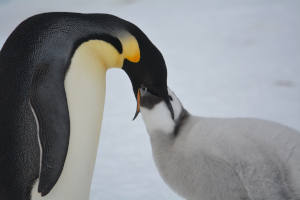 Polar biological communities are generally subjected to the influence of various factors concomitant with low temperatures, such as dehydration, ice cover, low nutrient availability, exposure to harmful solar radiation (e.g. UV-B radiation), highly variable light periods and, in specific cases, high salinity and osmotic stress. Biodiversity guarantees the functioning of all ecosystems, so studying the properties and temporal evolution of polar ecosystems is a tool of fundamental importance for improving our knowledge on their current state and for making future predictions in relation to climatic change. The analysis and monitoring of the biodiversity of biological communities and their ecological dynamics constitute the focal point of this research topic. Of particular interest is the study of morphological-functional adaptation mechanisms adopted by polar organisms for survival in extreme conditions. Temporal processes and spatial patterns of greening are also considered through remote sensing technologies, especially as a response to the deepening of the active layer of the Arctic permafrost.
Polar biological communities are generally subjected to the influence of various factors concomitant with low temperatures, such as dehydration, ice cover, low nutrient availability, exposure to harmful solar radiation (e.g. UV-B radiation), highly variable light periods and, in specific cases, high salinity and osmotic stress. Biodiversity guarantees the functioning of all ecosystems, so studying the properties and temporal evolution of polar ecosystems is a tool of fundamental importance for improving our knowledge on their current state and for making future predictions in relation to climatic change. The analysis and monitoring of the biodiversity of biological communities and their ecological dynamics constitute the focal point of this research topic. Of particular interest is the study of morphological-functional adaptation mechanisms adopted by polar organisms for survival in extreme conditions. Temporal processes and spatial patterns of greening are also considered through remote sensing technologies, especially as a response to the deepening of the active layer of the Arctic permafrost.
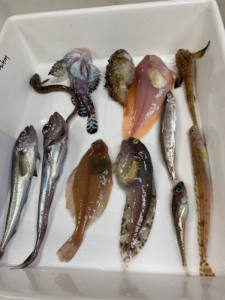 The growing human footprint in the polar regions, already made vulnerable by ongoing climate change, can have negative effects through pollution, habitat destruction, introduction and proliferation of invasive/alien species and overexploitation of resources. The study of the levels of contamination and of the potential for bioaccumulation and biomagnification in the food web makes it possible to provide integrated information on the ecosystem by identifying the hotspots in which species may be more vulnerable and sensitive to climate variability. Of interest is also the study of the colonization processes of plastic polymers, with structural and functional analysis of microbial biofilms (plastisphere) and their response to anthropic/natural forces.
The growing human footprint in the polar regions, already made vulnerable by ongoing climate change, can have negative effects through pollution, habitat destruction, introduction and proliferation of invasive/alien species and overexploitation of resources. The study of the levels of contamination and of the potential for bioaccumulation and biomagnification in the food web makes it possible to provide integrated information on the ecosystem by identifying the hotspots in which species may be more vulnerable and sensitive to climate variability. Of interest is also the study of the colonization processes of plastic polymers, with structural and functional analysis of microbial biofilms (plastisphere) and their response to anthropic/natural forces.
Main ERC Panels:
• LS8_1 - Ecosystem and community ecology, macroecology
• LS8_2 - Biodiversity
• LS8_5 - Biological aspects of environmental change, including climate change
• LS8_12 - Microbial ecology and evolution
• LS8_13 - Marine biology and ecology
• PE10-1 - Atmospheric chemistry, atmospheric composition, air pollution
• PE10_17 - Hydrology, hydrogeology, engineering and environmental geology, water and soil pollution
 Ministero dell'Universita e Ricerca
Ministero dell'Universita e Ricerca
Programma Ricerche Artico
Programma Nazionale di Ricerca in Antartide
 Ministero degli Affari Esteri e della Cooperazione Internazionale
Ministero degli Affari Esteri e della Cooperazione Internazionale
L'Italia e l’Artico
L’Italia e l’Antartide
CNR-ISP
National Research Council
Institute of Polar Sciences
c/o Scientific Campus - Ca' Foscari University Venice - Via Torino, 155 - 30172 VENEZIA MESTRE (VE)
Phone: +39 041 2348547 - E-mail: protocollo.isp AT pec.cnr.it
Fax: +39 041 2348 549 - Codice Fiscale: 80054330586 - P.I.:02118311006
Unless otherwise indicated, the content of this site is licensed : Attribution Non Commercial Share Alike 4.0 International (CC BY-NC-SA 4.0)
Privacy policy e Cookie policy - Transparent administration (CNR)







